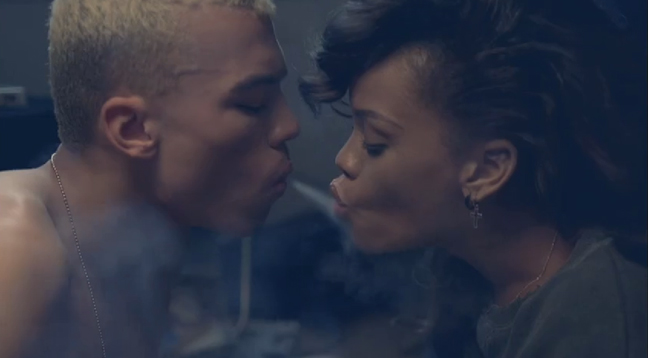
by Jonno Seidler (One A Day)
A strange thing has been happening to me lately. I’ve been having serious, emotional responses to what seems to be terrible, mainstream-crossover takeover dance music. It’s something most people I work with aren’t exposed to all that often, having replaced their car radios with iPod jacks and eschewed the ARIA Top 50 for Beatport and HypeM charts. Ask me what the Number One song in the country was this week and if it wasn’t for my new friend Tim Byron, I’d have no fucking idea. These are the songs, arguably, that define the lamestream, the same people who still think Kyle Sandilands is funny and thought Good Charlotte’s presence at the ARIA Awards over the weekend was the greatest thing ever…
(Insert typical counter-cultural superiority statement here.)
However, like most people I work with, I go the gym. And there’s no escaping house music at the gym. In fact it seems like the more muscled-up football players there are at your local dumbell emporium, the greater the chance that you’ll be exposed to a non-stop hour of the latest and greatest in mainstream, emotion-driven house that manages to disguise soullessness with savvy production. This probably explains the very existence of Stereosonic. So there I am minding my own business, doing push-ups in a vain attempt to look like a Sick Bro when these guys are onto their second protein shake and are doing bicep curls with something close to my body weight when that new Calvin Harris song with Rihanna (or as it’s unfairly billed, Rihanna ft. Calvin Harris) comes on. And of course, they turn it up.
The thing about this kind of stuff that The Ninety-Nine Percent like is its implied romanticism. Just take this joint, which boasts a grand total of seven words – not even a haiku – and yet manages to capture the essence of being young, in love, trapped and free. “We found love in a hopeless place.” These are lyrics which mean everything and nothing. They are universally applicable and personally useful if you should require them to be. All they need now is the benefit of a slamming bass line (tick), a simple structure (tick), and amazingly well-produced chord progression that is actually devastatingly simple (tick) and bam. Instant gold.
But that doesn’t explain why I had a bit of a choke-up listening to it. After all, if it is the music journalist’s role to recognise artifice, to haul in producers by the ear and demand an explanation for why they are writing at a quarter of their potential, pumping out over-glossed B- tracks rather than limber A+s, we should be the most protected from their insidious charms. And sure, you could argue that Justice’s nine-word remix opus of Simian’s ‘We Are Your Friends’ is no better, and that it’s just a matter of taste, but it’s more than that. Calvin Harris doesn’t need a festival to justify his music’s existence, nor does Guetta or even -dare i say it- wil.iam. They’re bringing everything about those collective gatherings of hedonistic souls straight to your cranium and you aren’t paying a single cent.
I remember this British doco about Madchester movement where ravers were interviewed about what they liked in their genre of music. “It’s upliftin,'” one particularly excitable lad said in his lovably rough brogue, and some thirty years on, the same sentiment applies. We know that semiquaver snare drum lead-up to the next riff drop is going to happen in ‘We Found Love’ because it happens in every single song of this nature. We know that theme and variation is literally all that these things have going for them. But they’ve homogenised and streamlined elements of fringe electronica, pop, R&B and disco into the kind of catch-all product that is designed to make you have an emotional response even if you don’t want to. The reason that Avicii and his compatriots are quickly becoming favourites among young kids who’d previously expressed no interest in dance music of any kind is because they’re tapping into this idea. Our ears are reaching for the skies in the same way our hands do out at stadium shows.
Guetta is often credited with bringing urban stars to the house music table, and indeed he’s the most successful in this respect. But I’ve noticed that the ones that get the most positive reaction are the ones that aren’t concerned with nightlife, popping bottles or screwing strangers. They’re about love. The Frenchman’s penned dozens of hits, but ‘When Love Takes Over’ was the only one (including the ubiqituous ‘I Gotta Feeling’) which actually won a Grammy. Mainstream dance music isn’t that far from classic pop music. It might be hiding behind multiple layers of drum tracks and hyper-sophisticated production, but like all of us, it’s still looking for the same thing.
Eventually, we’ll find it.





Comments